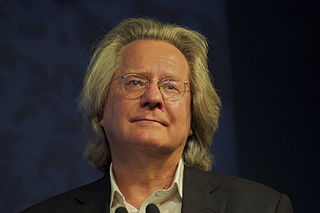A Quote by William Morris
Beauty, which is what is meant by art, using the word in its widest sense, is, I contend, no mere accident to human life, which people can take or leave as they choose, but a positive necessity of life.
Related Quotes
Christianity has ever been the enemy of human love; it has forever cursed and expelled and crucified the one passion which sweetens and smiles on human life, which makes the desert blossom as the rose, and which glorifies the common things and common ways of earth. It made of this, the angel of life, a shape of sin and darkness ... Even in the unions which it reluctantly permitted, it degraded and dwarfed the passion which it could not entirely exclude, and permitted it coarsely to exist for the mere necessity of procreation.
Must love be ever treated with profaneness as a mere illusion? or with coarseness as a mere impulse? or with fear as a mere disease? or with shame as a mere weakness? or with levity as a mere accident? whereas it is a great mystery and a great necessity, lying at the foundation of human existence, morality, and happiness,--mysterious, universal, inevitable as death.
If life is to be fully human it must serve some end which seems, in some sense, outside human life, some end which is impersonal and above mankind, such as God or truth or beauty. Those who best promote life do not have life for their purpose. They aim rather at what seems like a gradual incarnation, a bringing into our human existence of something eternal, something that appears to imagination to live in a heaven remote from strife and failure and the devouring jaws of Time.
Socrates famously said that the unconsidered life is not worth living. He meant that a life lived without forethought or principle is a life so vulnerable to chance, and so dependent on the choices and actions of others, that it is of little real value to the person living it. He further meant that a life well lived is one which has goals, and integrity, which is chosen and directed by the one who lives it, to the fullest extent possible to a human agent caught in the webs of society and history.
We must believe in a sense of life renewed by the theater, a sense of life in which man fearlessly makes himself master of what does not yet exist, and brings it into being. And everything that has not been born can still be brought to life if we are not satisfied to remain mere recording organisms.
The voice of our age seems by no means favorable to art, at all events to that kind of art to which my inquiry is directed. The course of events has given a direction to the genius of the time that threatens to remove it continually further from the ideal of art. For art has to leave reality, it has to raise itself bodily above necessity and neediness; for art is the daughter of freedom, and it requires its prescriptions and rules to be furnished by the necessity of spirits and not by that of matter.
Beauty is like a train that ceaselessly roars out of the Gare de Lyon and which I know will never leave, which has not left. It consists of jolts and shocks, many of which do not have much importance, but which we know are destined to produce one Shock, which does...The human heart, beautiful as a seismograph...Beauty will be CONVULSIVE or will not be at all.
Beauty is a dangerous word. Beauty becomes slightly indulgent for me. It's a snatched kind of moment for me because I'm entitled to a nice day in my life but beauty creeps close to narcissism, which I really dislike, particularly in human beings who were born with good looks, who cash in on it. It's a bit of a dodgy word for me. I look at it with caution. It can be a bit like walking into quicksand; it can get you in to all kinds of trouble.
What strikes me is the fact that in our society, art has become something which is related only to objects and not to individuals, or to life. That art is something which is specialized or which is done by experts who are artists. But couldn't everyone's life become a work of art? Why should the lamp or the house be an art object, but not our life?
Our present urgency is to recover a sense of the primacy of the Universe as our fundamental context, and the primacy of the Earth as the matrix from which life has emerged and on which life depends. Recovering this sense is essential to establishing the framework for mutually enhancing human-Earth relations for the flourishing of life on the planet.







































